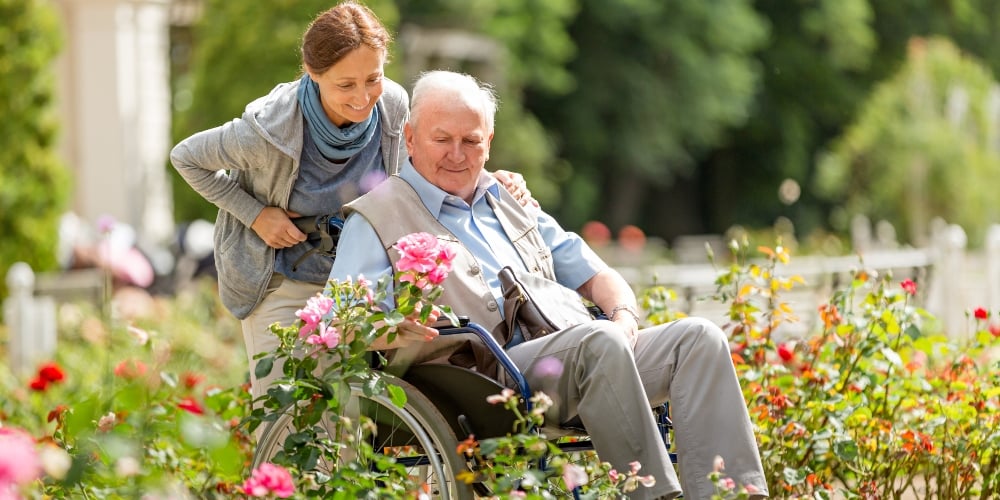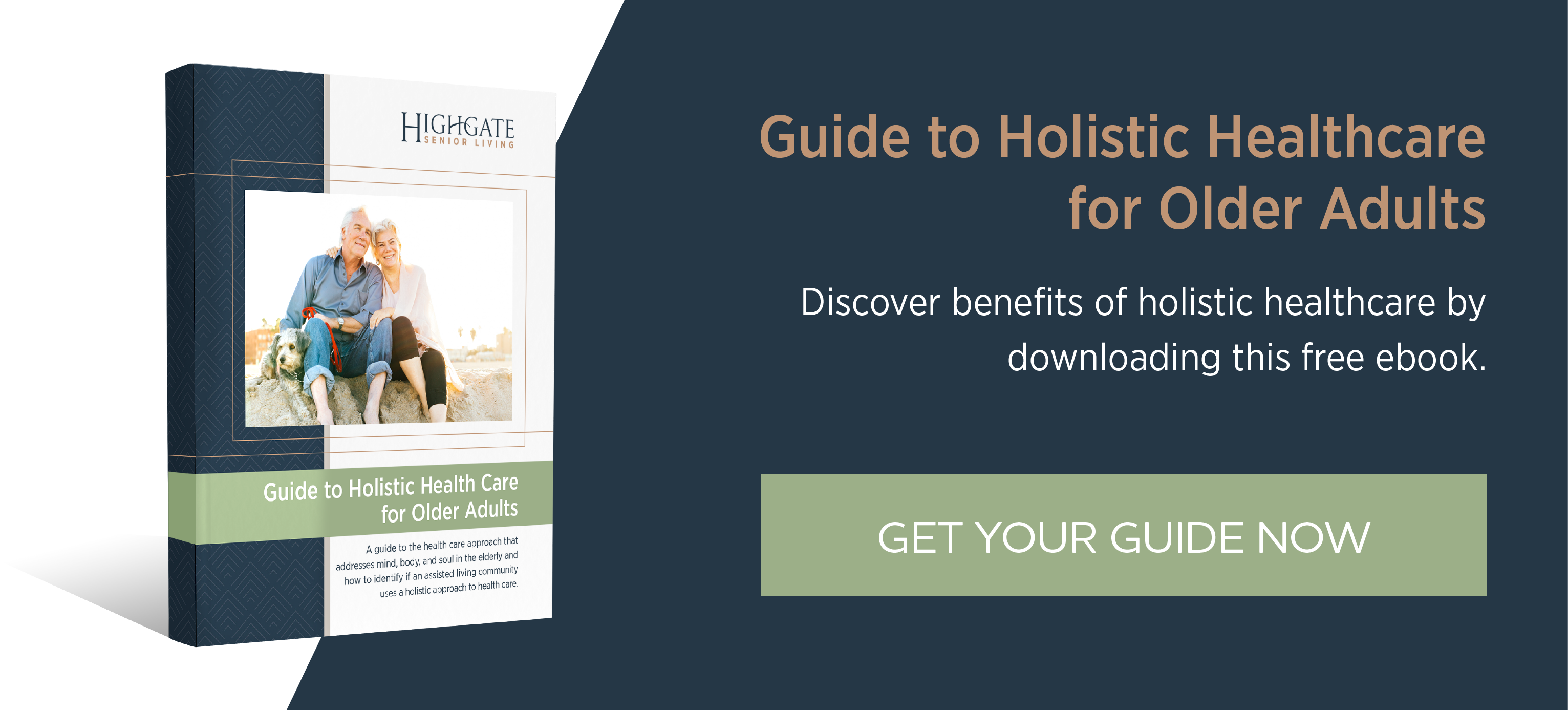
When selecting a senior living community for your aging parent, you want to know their caretakers will keep them comfortable and content. But does that necessarily mean medication? At Highgate Senior Living in Temecula, it certainly doesn’t.
In fact, that’s often part of families’ attraction to Highgate Senior Living communities. Instead of using medical interventions as a first response, Healthcare Director, LaTresh Walker, says they try not to use medication, especially psychotropic drugs, when possible, and for memory care residents.
Holistic Alternatives
Instead, residents at Highgate Senior Living in Temecula are offered holistic alternatives, such as:
- Aromatherapy through lotions or diffusers that help soothe and build appetite.
- Hand and foot massages that provide relief through pressure to the palms or soles.
- Special teas developed in the community to address anxiety and aid digestion and tranquility.
- Listening to calming music on headphones.
“I really love our holistic approach. It’s what attracted me to Highgate,” Walker says. “A lot of people just want to give residents medications when they are agitated. But it’s a short-term solution. You have to continue using them.”
Walker says many times what some families and professionals might consider aggressive behavior from memory care residents, is just the senior’s way of communicating a need or a discomfort.
Reducing Medication
While care partners at Highgate recognize there is a place for medication, they try to minimize the use of them when possible. Sometimes, this comes down to doing a bit of detective work, and learning what is really causing a residents’ discomfort. In a memory care community, that can be especially challenging.
“A lot of times they just can’t communicate well. They need a quiet environment, so maybe it’s too much stimulation. Maybe it’s the temperature, maybe they’re hungry, are there too many people around them?” Walker says.
Walker reiterates that Highgate doesn’t shy away from the use of medication when other remedies aren’t able to help — but more often than not, she says, they do. So, care partners always try alternative approaches before resorting to medication. If one method doesn’t work, they try another. It’s one of the ideas staff clearly articulates when prospective residents and their adult children tour the community.
“We let them know our philosophies from the start, and a lot of times that’s what attracts them to Highgate,” Walker says. But if a resident or their family is unsure of a holistic approach to a given problem, she asks them to at least give it a try. If it’s not an emergency, she recommends trying these remedies for a week. If it doesn’t work, the staff will look for a different way to improve the resident’s health and comfort.
Walker states, “No one ever says ‘no.’ Often one holistic remedy creates another. When families see their loved one has been helped by therapies that do not involve drugs, they are more willing and open to the idea of other non-medical therapies in the future.”





